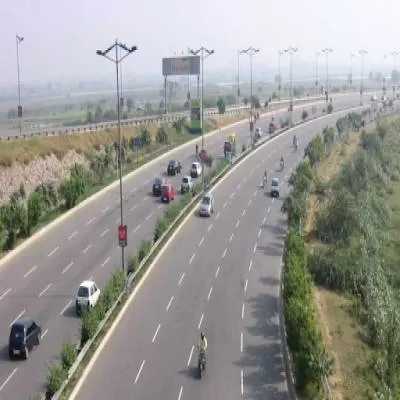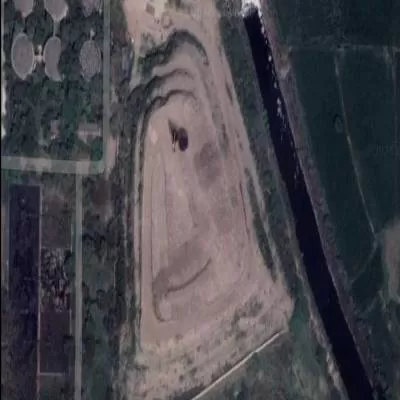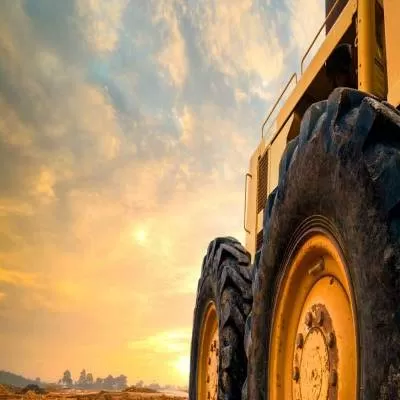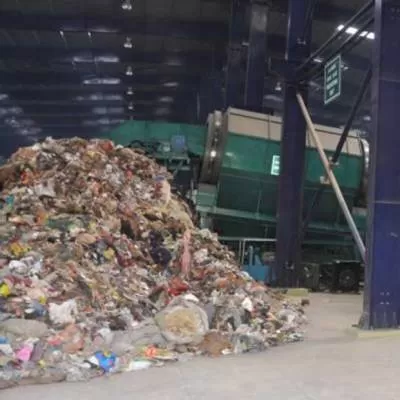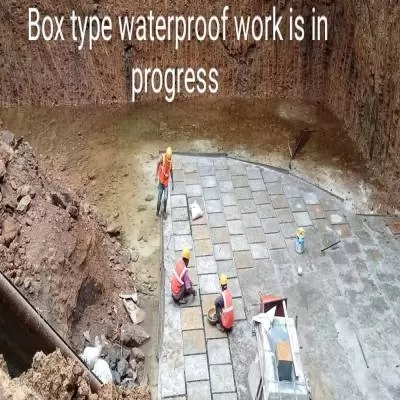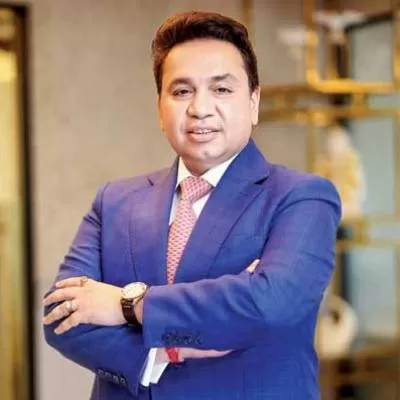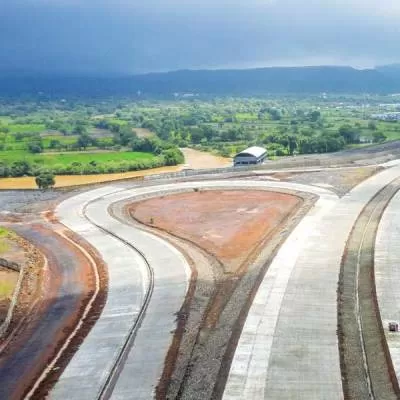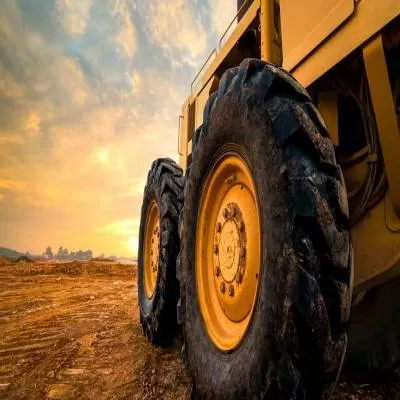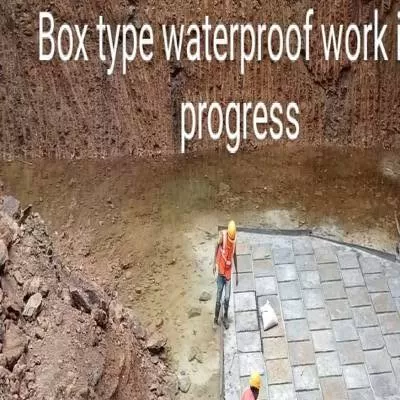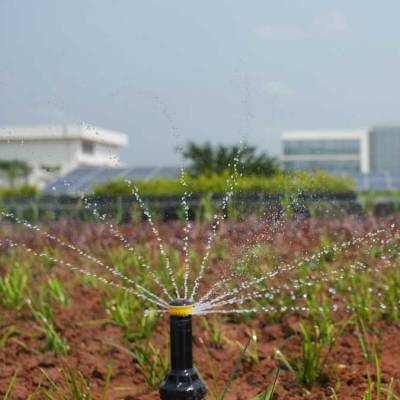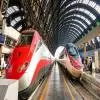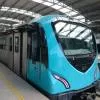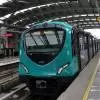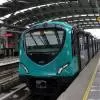- Home
- Infrastructure Urban
- WATER & WASTE
- We are looking at acquisition of mid-size EPC companies for water

We are looking at acquisition of mid-size EPC companies for water
Infrastructure is vital for any economy to function. Vishvaraj Infrastructure Ltd (VIL) has been actively involved in developing water and transportation sector projects on the PPP model. Central to the company´s success has been its philosophy of creating a win-win proposition for all stakeholders and the willingness to walk the extra mile to ensure environmental sustainability. Arun Lakhani, Chairman and Managing Director, Vishvaraj Infrastructure Ltd, shares more on the company´s plans...
What parameters do you consider before taking up a project?
Value creation in real terms for all stakeholders particularly the fourth ´P´, which is People, in the PPP model. We also consider revenue security to ensure the project´s bankability. There has to be a win-win and value creation for all stakeholders, which is important for PPP projects.
How do you strategise to move ahead in the construction sector?
At present, people are cautious. But there are upcoming construction projects in the roads sector. There is a large appetite because there have not been many projects in the past few years. While competition in construction is trending right now, our strategy is to keep focus on PPP and hybrid BOT projects.
Why the decision to stay focused on BOT projects?
We are a utility company and our DNA is that of a developer, and the PPP model suits us perfectly. There is a basic difference between an EPC construction company and a utility or developer. The mindset of living with a community for 30 years and completing a project in three years in EPC is always different. The life-cycle cost effectively improves quality parameters in PPP projects.
Tell us about your upcoming projects along with the technologies and materials used.
At present, our main focus is on water reuse and urban water. In Rajasthan, we are looking forward to working in these areas. Also, in Karnataka, we are working in five towns on the distribution side. And, in Maharashtra, we are awaiting projects, which are expected to come for bidding in the near future.
What about the Nagpur city 24/7 water supply project and projects in Punjab and Haryana for wastewater reuse?
In the Nagpur city 24/7 project, the distribution network made an impact. The technologies we use for water treatment are improving the quality of water. The challenge is contamination owing to old pipelines, which we have not been able to replace 100 per cent with new pipelines, due to project scope limitation. The quality of water has improved in the last three years and so is the volume of water billed and collected for. It´s a 25-year concession and the improvement takes some time to become visible. Over 8 lakh people have been benefited by improvement in services in Nagpur. The Punjab and Haryana projects are at an initial stage. The basic concept involves creating sewage as a resource of water, rather than wastage.
What solutions offered by you contribute to sustainable development in the water sector?
Sustainability is essential when we speak about water. The water cycle needs to be completed. Most of the Indian towns have over 50 per cent Non-Revenue Water (NRW), which is water that is not accounted for, after putting in the system. This needs to be corrected by investment in the meters along with pipeline replacement and better hydraulic modelling. Similarly, sewage, which is 80 per cent of the water supplied to the town, needs to be reused after treatment. Today, 38,000 million of sewage going into the environment untreated contaminates fresh water bodies, creating health hazards; 21 per cent of diseases are water born. This water should be treated and reused by industries. In Nagpur, the 200 ml plant we are installing will help not only in the treatment of sewage, but once treated water is used by the power stations, their reservation of fresh water for 200 mld will be transferred to the town for drinking pruposes. This will help conserve water, and a positive cycle commencement.
Any challenges faced at the policy level or in terms of execution?
We need to have a policy to promote reuse, which does not exist at present. It will also address India´s ´Swachh Bharat´ mission. Similarly policy for reduction of NRW in drinking water should be implemented more rigorously. Promoting the necessary safeguards for reforms is essential for efficient execution. The challenge for urban local bodies is that they do not have sufficient revenue from taxes or budget to spend on sewage treatment plants (STPs). Their priority is water, electricity, roads and cleanliness. There is a shortage of funds to build STPs and then operate them, which is why this is getting neglected.
Are there any recommendations you would like to make to the government?
The government should make it compulsory for the industry to use the available treated water, instead of freshwater, in whatever way possible. If treated water is available, it should be given priority and industries should be incentivised for using it, which is more expansive than irrigation water. Most important is for the government to understand the importance of citizen engagement in making the PPP model a success - the 4P model where the fourth ´P´ is People.
Are ´smart cities´ and AMRUT new focus areas for you?
Water will definitely be a major element in any smart city û hence, the emphasis on reuse. For smart cities, there definitely needs to be a complete cycle, such as saving water in the pipeline, reducing NRW, treating sewage and creating water for commercial use. With our experience, we should be able to get a few projects.
What about opportunities in Tier-II and Tier-III cities?
Actually, in Tier-II and Tier-III cities, there is a dire need for infrastructure. However, in these cities, the local bodies do not have enough capital. Even if the state governments provide 90 per cent, the balance 10 per cent is difficult to bring in. Generally, in the PPP model, the balance 10 per cent responsibility is given to the private operator. In smaller Tier-II and Tier-III towns, the urban local bodies do not have the credibility for bankers to support the operators. The Central Government needs to think of an insurance wrap, which will provide revenue security to operators and their bankers, unlocking a huge potential for infrastructure development, where it is needed most.
How did your company perform in the last fiscal and what are your growth prospects for the next year?
The last year was relatively slow; the year before too was not great for the market. Projects that were to happen last year are happening this year. So this year and the next, we will see a lot of activity. We are looking at acquisition of mid-size EPC companies for water; there is a large demand for urban house water connection. We have partnerships with various multinational and large national companies for various projects and will continue to do so.
- Arun Lakhani, Chairman & Managing Director, Vishvaraj Infrastructure Ltd Infrastructure is vital for any economy to function. Vishvaraj Infrastructure Ltd (VIL) has been actively involved in developing water and transportation sector projects on the PPP model. Central to the company´s success has been its philosophy of creating a win-win proposition for all stakeholders and the willingness to walk the extra mile to ensure environmental sustainability. Arun Lakhani, Chairman and Managing Director, Vishvaraj Infrastructure Ltd, shares more on the company´s plans... What parameters do you consider before taking up a project? Value creation in real terms for all stakeholders particularly the fourth ´P´, which is People, in the PPP model. We also consider revenue security to ensure the project´s bankability. There has to be a win-win and value creation for all stakeholders, which is important for PPP projects. How do you strategise to move ahead in the construction sector? At present, people are cautious. But there are upcoming construction projects in the roads sector. There is a large appetite because there have not been many projects in the past few years. While competition in construction is trending right now, our strategy is to keep focus on PPP and hybrid BOT projects. Why the decision to stay focused on BOT projects? We are a utility company and our DNA is that of a developer, and the PPP model suits us perfectly. There is a basic difference between an EPC construction company and a utility or developer. The mindset of living with a community for 30 years and completing a project in three years in EPC is always different. The life-cycle cost effectively improves quality parameters in PPP projects. Tell us about your upcoming projects along with the technologies and materials used. At present, our main focus is on water reuse and urban water. In Rajasthan, we are looking forward to working in these areas. Also, in Karnataka, we are working in five towns on the distribution side. And, in Maharashtra, we are awaiting projects, which are expected to come for bidding in the near future. What about the Nagpur city 24/7 water supply project and projects in Punjab and Haryana for wastewater reuse? In the Nagpur city 24/7 project, the distribution network made an impact. The technologies we use for water treatment are improving the quality of water. The challenge is contamination owing to old pipelines, which we have not been able to replace 100 per cent with new pipelines, due to project scope limitation. The quality of water has improved in the last three years and so is the volume of water billed and collected for. It´s a 25-year concession and the improvement takes some time to become visible. Over 8 lakh people have been benefited by improvement in services in Nagpur. The Punjab and Haryana projects are at an initial stage. The basic concept involves creating sewage as a resource of water, rather than wastage. What solutions offered by you contribute to sustainable development in the water sector? Sustainability is essential when we speak about water. The water cycle needs to be completed. Most of the Indian towns have over 50 per cent Non-Revenue Water (NRW), which is water that is not accounted for, after putting in the system. This needs to be corrected by investment in the meters along with pipeline replacement and better hydraulic modelling. Similarly, sewage, which is 80 per cent of the water supplied to the town, needs to be reused after treatment. Today, 38,000 million of sewage going into the environment untreated contaminates fresh water bodies, creating health hazards; 21 per cent of diseases are water born. This water should be treated and reused by industries. In Nagpur, the 200 ml plant we are installing will help not only in the treatment of sewage, but once treated water is used by the power stations, their reservation of fresh water for 200 mld will be transferred to the town for drinking pruposes. This will help conserve water, and a positive cycle commencement. Any challenges faced at the policy level or in terms of execution? We need to have a policy to promote reuse, which does not exist at present. It will also address India´s ´Swachh Bharat´ mission. Similarly policy for reduction of NRW in drinking water should be implemented more rigorously. Promoting the necessary safeguards for reforms is essential for efficient execution. The challenge for urban local bodies is that they do not have sufficient revenue from taxes or budget to spend on sewage treatment plants (STPs). Their priority is water, electricity, roads and cleanliness. There is a shortage of funds to build STPs and then operate them, which is why this is getting neglected. Are there any recommendations you would like to make to the government? The government should make it compulsory for the industry to use the available treated water, instead of freshwater, in whatever way possible. If treated water is available, it should be given priority and industries should be incentivised for using it, which is more expansive than irrigation water. Most important is for the government to understand the importance of citizen engagement in making the PPP model a success - the 4P model where the fourth ´P´ is People. Are ´smart cities´ and AMRUT new focus areas for you? Water will definitely be a major element in any smart city û hence, the emphasis on reuse. For smart cities, there definitely needs to be a complete cycle, such as saving water in the pipeline, reducing NRW, treating sewage and creating water for commercial use. With our experience, we should be able to get a few projects. What about opportunities in Tier-II and Tier-III cities? Actually, in Tier-II and Tier-III cities, there is a dire need for infrastructure. However, in these cities, the local bodies do not have enough capital. Even if the state governments provide 90 per cent, the balance 10 per cent is difficult to bring in. Generally, in the PPP model, the balance 10 per cent responsibility is given to the private operator. In smaller Tier-II and Tier-III towns, the urban local bodies do not have the credibility for bankers to support the operators. The Central Government needs to think of an insurance wrap, which will provide revenue security to operators and their bankers, unlocking a huge potential for infrastructure development, where it is needed most. How did your company perform in the last fiscal and what are your growth prospects for the next year? The last year was relatively slow; the year before too was not great for the market. Projects that were to happen last year are happening this year. So this year and the next, we will see a lot of activity. We are looking at acquisition of mid-size EPC companies for water; there is a large demand for urban house water connection. We have partnerships with various multinational and large national companies for various projects and will continue to do so. (For full version, log on to www.ConstructionWorld.in)


